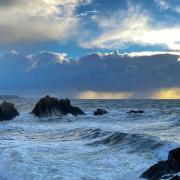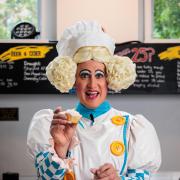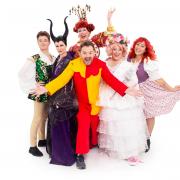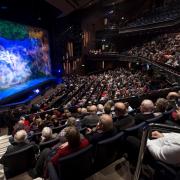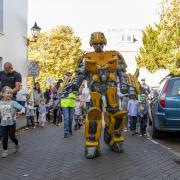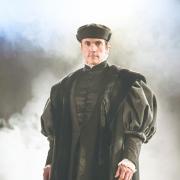Columnist Deborah Clark reflects on the commando spirit after watching her son receive his green beret at Lympstone
This story has been a long time coming. I’ve wanted to write about The Royal Marines since 2012 when my 15-year-old #1 son decided this was a life-goal for him.
One recent Wednesday, after the final Commando Challenge (a 30-mile yomp with weights over Dartmoor within eight hours - as a troop, supporting the whole not as individuals), he and his troop each received their “green lid” from their Commandant.
Long ago, #1 told me this moment would be “better than the birth of his first child”. The pride shone out in his face - you bet that moment was re-enacted for the camera, back on base. #1 looked knackered, proud, confident and, suddenly, completely grown-up.
To understand his journey (and mine) please note that he is the first of our families to join the Forces in peacetime. Many of my family have signed The Official Secrets Act but this has been a less frontline affair, if you get my meaning.
I’m not sure if this would have happened had we not relocated to Devon in 2001 and brought up both #1 and #2 here. The integration with Dartmoor and the inevitability of the sea when viewed 24/7 from rocky Burgh Island are powerful teachers.
It’s appropriate that the headquarters of The Royal Marines is in the heart of Devon and #1 has drawn the Silver Fox and me into a Marines way of life we never anticipated.
Based in Lympstone since 1940 (although the Commando School was based at Bickleigh until 1960), the base was renamed the “Commando Training Centre Royal Marines” in 1972. I still can’t quite believe this resource is just down the road.
Back in October 2019 we were summoned to a “Family Day” for new recruits. The history of The Marines was laid out: they trace their beginnings back to the formation of the English Army’s “Duke of York and Albany Maritime Regiment of Foot” on 28 October, 1664. They were originally formed to prevent mutiny aboard ship. The Marines still celebrate 28 October each year.
I dug a little further back (quite a few centuries) to understand the role of soldiers on water. You don’t put soldiers on ships unless you have something to defend (like the trading ships of the early British Empire) - or attack. In 500BC the Greeks had a name for it: ??????? meaning “soldiers on board ships”. (Side swipe; in Modern Greek it now means a commuter...which seems apt).
The Marines, after much wrangling in the 17th Century, now maintain a close relationship with the Korps Marinieres, the Netherlands Marine Corps, which was founded on 10 December, 1665, a year later. This was during the First Anglo-Dutch war, so it was a relationship born of rivalry.
In 1704, the combined forces of the Dutch (400) and British (1,900) Marines attacked Gibraltar, then under Spanish rule, and secured it for the British Empire. Put aside your feelings about colonialism and fast forward to 2015, when a huge piece of Gibraltar rock was placed on Woodbury Common to commemorate the achievements, not of Empire, but of the men and (hopefully soon) women who have trained, endured and achieved something extraordinary. Of all the numerous battles, rescues, defences and campaigns of the Royal Marines, this is the one that features on their badge.
There is no getting away from it; my #1 son is going to be defending you with everything he’s got. There are only around 5,500 serving Marines in at this moment. They carry a lot of expectation to rise to every challenge.
Let’s go back to the work he put into the last weeks of training. It should have been “just” 32 weeks. This is almost double the time put in by standard infantry troops - the elite commando course is an old-fashioned but brutal test of endurance, fitness and professionalism that’s been a tradition since 1945. It’s tough; the dropout rate is about 80%.
In #1’s troop, more than 49 guys started and just six, including #1, made it through without injury or rejection. They call themselves “originals”. In fact, the troop merged in February with the following troop because of the dropout rate, which is not unusual. Add to that the extra time and pressures imposed by lockdown - #1 was on 48-hour “notice to move” and followed a prescribed training programme every day, while home, for five weeks.
So on a recent Friday, the Silver Fox and I watched #1 “Pass Out”. Drills, uniform, and adrenaline were the watchwords of the day. And pride. I think we can all - now more than ever - take a lesson from the watchwords of the Commando Spirit taught to all recruits. They are: courage; determination, unselfishness and cheerfulness in the face of adversity.
Deborah Clark is owner and designer of Southernhay House Hotel and Number Nine Exe . Her column appears every month in Devon Life.
Have you joined the Devon Life Facebook page yet?




